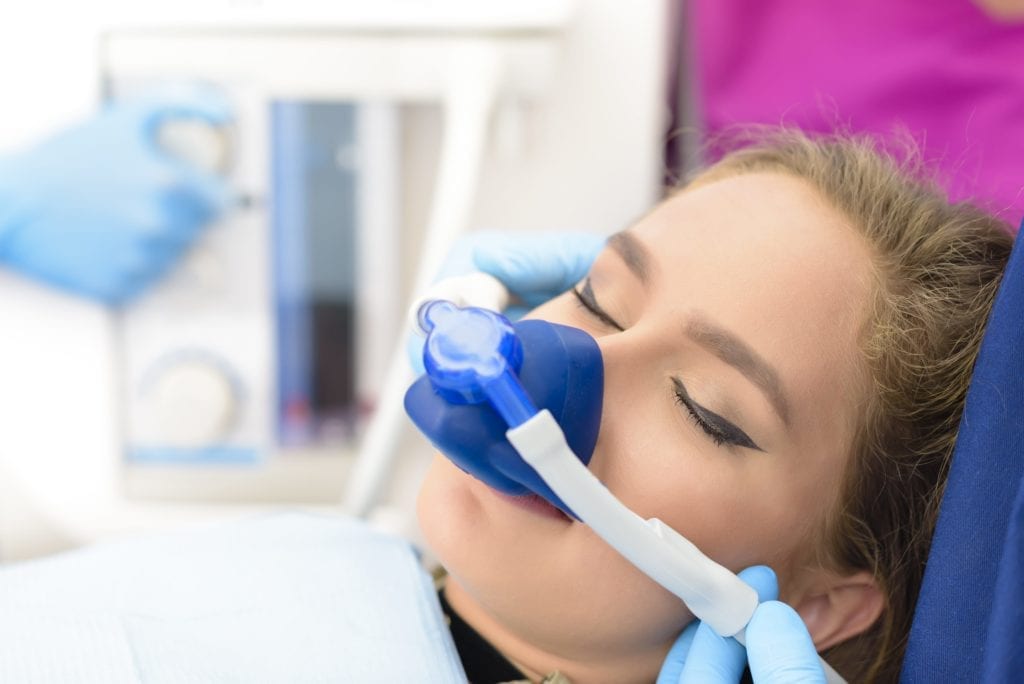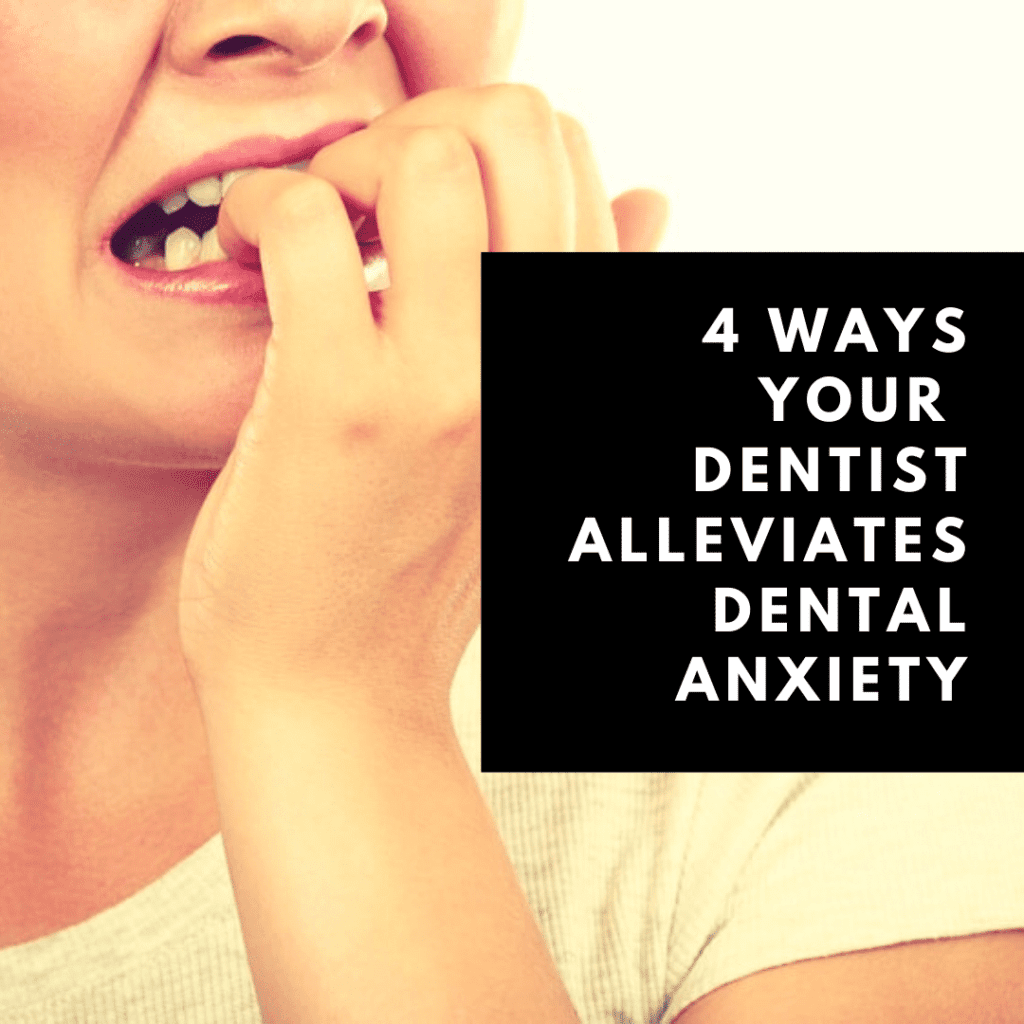Did you know that dental anxiety is a real problem and that 9-20% of people have dental anxiety that is so severe, they avoid the dentist entirely? While dental anxiety is a problem in itself, not visiting your dentist for regular check ups and preventative cleanings causes its own problems. At the very least, not visiting the dentist can increase your risk of developing both tooth decay and gum disease. When these dental problems are not treated, they can progress and have serious consequences to your oral health.
Still, working up the courage to visit the dentist is quite difficult if you have dental anxiety. However, dentists want their patients to feel comfortable in the dental chair and they realize that dental anxiety can be a very real obstacle to dental care. Therefore, many dentists offer anxiety-free dentistry to make things easier for their patients. Here are four ways that your dentist can alleviate dental anxiety:
Dental Anesthetics
One main reason that people tend to avoid the dentist is because they fear that going to the dentist will hurt. To combat this fear, modern dentists offer dental anesthetics to manage any discomfort that may be felt during certain procedures. Dental anesthetics block nerve signals to the area being treated, meaning that this area will be numb and unresponsive to painful stimuli. When dental anesthetics are being used, you should feel no pain and may only experience brief sensations of pressure.
Nitrous Oxide

Nitrous oxide is a type of mild to moderate dental sedative that is used to relax you during the procedure. Since it has also been known to elicit feelings of euphoria, it is sometimes referred to as laughing gas. When you are being sedated with nitrous oxide, a small mask will be placed over your nose during the procedure. As soon as you inhale the gas, your entire body will relax and feel calm, but you will still be aware and responsive to what is happening around you. The effects of nitrous oxide will dissipate once you stop inhaling the gas, meaning that you can safely return to all your usual activities immediately after the procedure.
Oral Sedation

Oral sedation is a moderate dental sedative in the form of a sleeping pill that is used to put you into a light sleep during your procedure. The morning of your procedure, and sometimes the night before, your dentist will instruct you to take a certain amount of the medication orally. As the medication begins to work, you will feel sleepy and relaxed, and may fall into a light sleep. However, you will still be easily able to wake up and can answer questions if need be. After your procedure, you will need a driver since the effects of oral sedation will linger.
IV Conscious Sedation
Intravenous (IV) sedation is a deep level of sedation delivered through an intravenous catheter. Its delivery method allows it to be the strongest and fastest-acting sedative option available. Just as with oral sedation, you will need to fast for an allotted amount of time. While under IV sedation, you will likely fall into a twilight sleep and have no memory during or after the procedure. You will also be completely unaware of what is happening around you at the time of the procedure. Since the effects of IV sedation also linger like those of oral sedation, you will need to find a ride home from the office. You should also take the rest of the day to relax until the effects of the sedation have worn off.

Dr. Admar holds dual certificates — a Bachelor of Dental Surgery (BDS) in 2010 from India and a Doctor of Dental Surgery (DDS) in 2014 from Canada. He is now a full time practicing dentist in Kamloops where he provides a variety of services. Dr. Admar spends hundreds of hours in continued dental education to stay up to date in cosmetic and implant dentistry and he has achieved several advanced qualifications.


